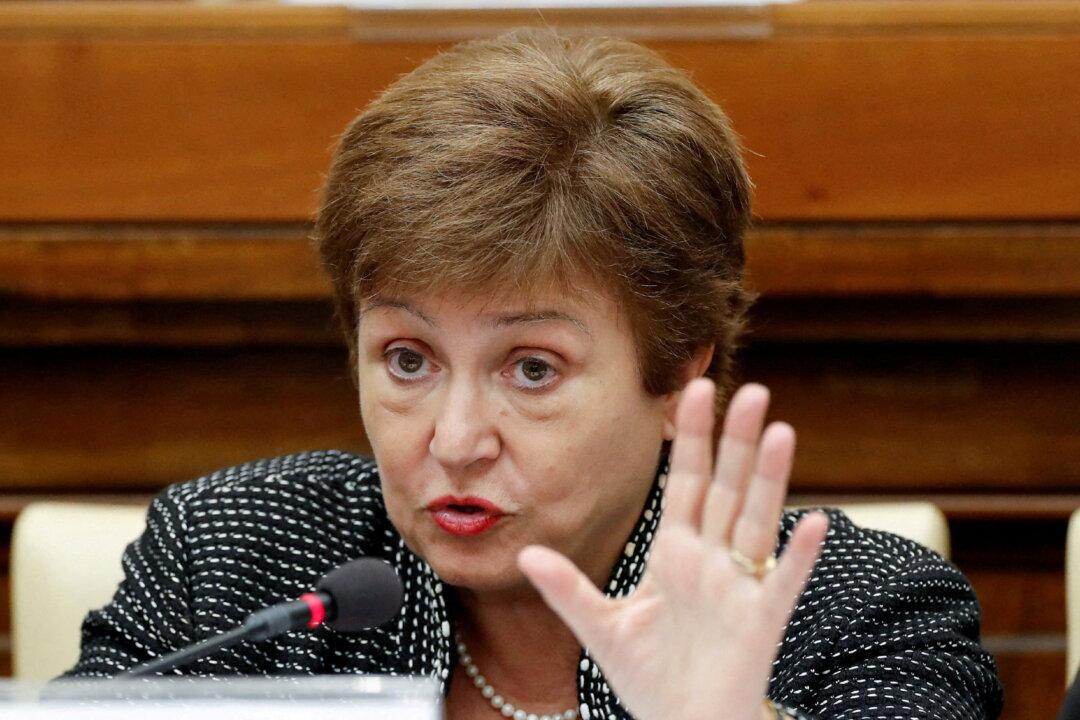WASHINGTON—The war in Ukraine is prompting the International Monetary Fund to cut global growth estimates for both 2022 and 2023 as higher food and energy prices pressure fragile economies, the IMF’s managing director, Kristalina Georgieva, said on Thursday.
Georgieva said in a “curtain raiser” speech for next week’s IMF and World Bank spring meetings that the fund would downgrade its growth outlooks for 143 economies representing 86 percent of global economic output, but said most countries will maintain positive growth.





